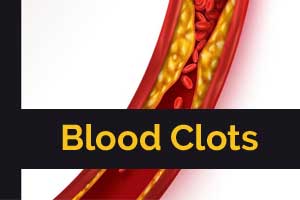- Home
- Editorial
- News
- Practice Guidelines
- Anesthesiology Guidelines
- Cancer Guidelines
- Cardiac Sciences Guidelines
- Critical Care Guidelines
- Dentistry Guidelines
- Dermatology Guidelines
- Diabetes and Endo Guidelines
- Diagnostics Guidelines
- ENT Guidelines
- Featured Practice Guidelines
- Gastroenterology Guidelines
- Geriatrics Guidelines
- Medicine Guidelines
- Nephrology Guidelines
- Neurosciences Guidelines
- Obs and Gynae Guidelines
- Ophthalmology Guidelines
- Orthopaedics Guidelines
- Paediatrics Guidelines
- Psychiatry Guidelines
- Pulmonology Guidelines
- Radiology Guidelines
- Surgery Guidelines
- Urology Guidelines
Apixaban safe and effective anticoagulant in cancer patients

Treatment with the oral drug apixaban for prevention of blood clot formation in patients undergoing cancer therapy is safe and effective, Mayo Clinic researchers have found. According to the study presented at the annual meeting of the American Society of Hematology, the drug was associated with fewer recurrent blood clots and fewer major bleeding events, compared to low-molecular-weight heparin.
Apixaban is an oral drug used for the treatment of blood clots in patients undergoing cancer therapy.
"Nearly 1 in 5 patients with cancer will develop a clot in the veins, referred to as either a deep vein thrombosis or pulmonary embolism. Clotting events can be deadly with pulmonary embolism being the second most common cause of death in cancer patients," Robert McBane, Mayo Clinic cardiologist who presented the findings at the annual meeting, said in a press release.
There are numerous limitations associated with twice-daily injections of low-molecular-weight heparin, the traditional treatment of choice for cancer patients who suffer a venous clot, notes Dr McBane.
"These injections can be painful and cause considerable bruising at the injection site. Injections are expensive at nearly $100 per day. And cancer patients may experience low platelet counts and be at risk for a clotting disorder called 'heparin-induced thrombocytopenia.'" Dr McBane noted that cancer and cancer treatment can be associated with kidney injury, which can limit the drug's use further. Finally, Dr McBane says there isn't is a good antidote for this medication should a bleeding problem arise.
"More recently, a number of new blood thinners called 'direct oral anticoagulants' have become available," says Dr McBane. "As a class, these drugs have a number of advantages, including oral delivery, lack of interactions with foods or other medications, and the lack of a need for monitoring drug levels." He says these qualities make this class of drug much easier to use than the traditional blood thinners. However, it was unclear whether these drugs could be used safely in cancer patients until now.
Dr McBane says the quality of life surveys, which were taken monthly throughout the six-month trial, showed that patients markedly preferred oral apixaban over injectable dalteparin. "We are hopeful that this medication will also improve medication compliance in cancer patients requiring blood thinner therapy."

Disclaimer: This site is primarily intended for healthcare professionals. Any content/information on this website does not replace the advice of medical and/or health professionals and should not be construed as medical/diagnostic advice/endorsement or prescription. Use of this site is subject to our terms of use, privacy policy, advertisement policy. © 2020 Minerva Medical Treatment Pvt Ltd